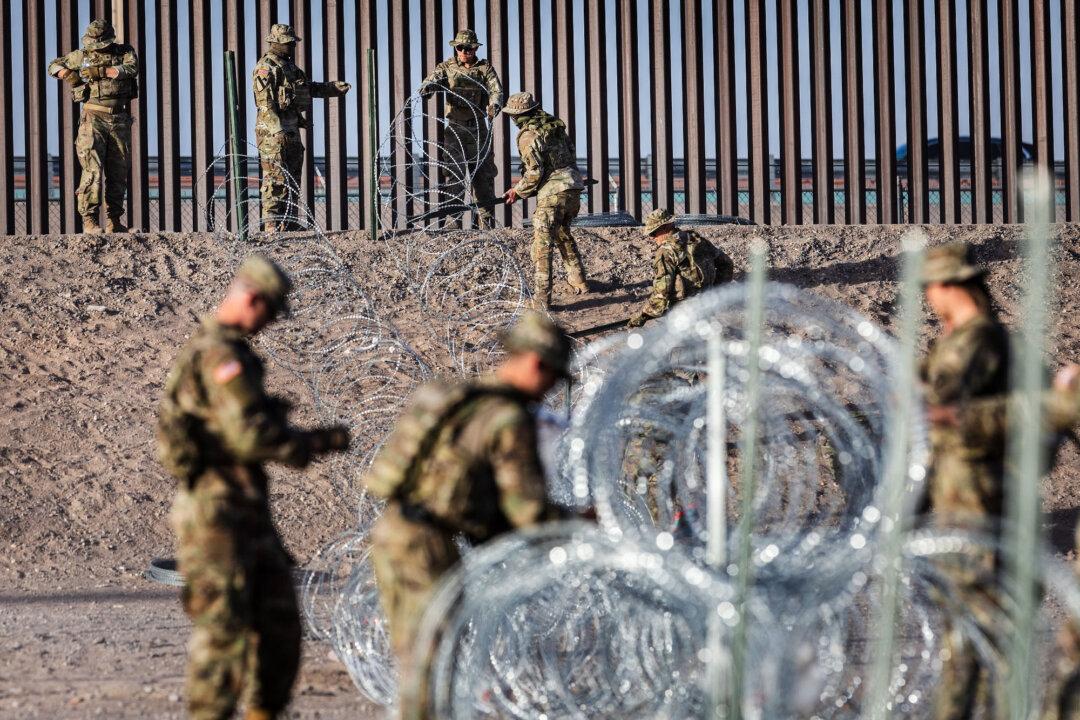Texas will send 400 members of the state’s National Guard to the U.S.–Mexico border to work with U.S. Border Patrol agents, Gov. Greg Abbott said on Jan. 27.
Abbott has directed Texas National Guard members to the border under his Operation Lone Star initiative that was set up to curb illegal immigration, with about 4,100 National Guard from the state currently assigned to the border mission.





